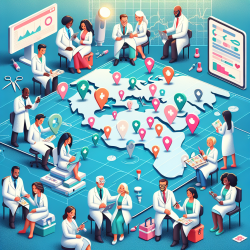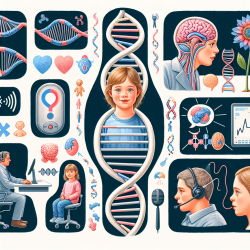In the ever-evolving field of online therapy, practitioners continually seek to enhance their skills to better serve their clients. One significant resource that can provide valuable insights is the research article titled "Basic Mental Concepts," published in 1948 by the National Council for Mental Hygiene in London. This article, available through the National Center for Biotechnology Information (NCBI), offers foundational knowledge that remains relevant to contemporary mental health practices.
Key Outcomes of Basic Mental Concepts
The research presents several core mental health principles that can be directly applied to online therapy:
- Understanding Cognitive Development: The article outlines the stages of cognitive development, emphasizing the importance of recognizing where a client is in their cognitive journey. This understanding can help therapists tailor their approaches to better meet the individual needs of their clients.
- Emotional Regulation Techniques: Basic Mental Concepts delves into strategies for managing emotions, a crucial skill for any therapist. By incorporating these techniques, practitioners can help clients develop healthier ways to cope with stress and emotional challenges.
- Building Therapeutic Alliances: The research underscores the importance of building strong, trust-based relationships between therapists and clients. This alliance is particularly vital in an online setting, where physical presence is absent, and trust must be established through virtual means.
Practical Applications for Online Therapy
Implementing the outcomes of Basic Mental Concepts in online therapy can significantly enhance the effectiveness of your practice. Here are some practical applications:
- Personalized Therapy Plans: Use the cognitive development stages outlined in the research to create personalized therapy plans. By understanding where a client stands cognitively, you can design interventions that are developmentally appropriate and more likely to succeed.
- Incorporate Emotional Regulation Techniques: Integrate the emotional regulation strategies discussed in the article into your sessions. Teach clients these techniques and practice them together during therapy, reinforcing their importance and effectiveness.
- Focus on Building Trust: In an online setting, building trust can be challenging but is crucial. Use techniques from the research to foster a strong therapeutic alliance. This might include consistent communication, showing empathy, and being transparent about the therapy process.
Encouraging Further Research
While the Basic Mental Concepts article provides a robust foundation, continuous learning and research are essential for staying current in the field of mental health. Here are a few ways to encourage further research:
- Stay Updated with Current Literature: Regularly read new research articles and publications in the field of mental health. This practice will help you stay informed about the latest developments and integrate new findings into your therapy practice.
- Participate in Professional Development: Attend workshops, webinars, and conferences related to online therapy and mental health. These events offer opportunities to learn from experts and network with other professionals in the field.
- Engage in Peer Discussions: Join online forums or professional groups where you can discuss recent research and share insights with your peers. Collaborative learning can provide new perspectives and enhance your understanding of complex concepts.
To read the original research paper, please follow this link:
Basic Mental Concepts.










